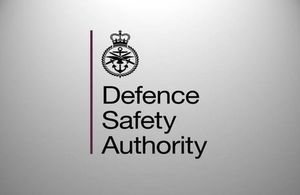This summary is drawn from notes taken during the hearing and is not a verbatim recording of what was said.
The tribunal is hearing two appeals against a ruling by the information commissioner, who said that some of the 2015/16 Defence Nuclear Safety Regulator's report should be released. Peter Burt, who made the original FOI request, is appealing for the whole report to be released. The MoD are appealing and want to withhold almost all of the report.
Shortly before the hearing the MoD released a 4 page excerpt from the report. The Ferret have published a story about the information in the excerpt, which is also published on the NIS website.
In the morning the tribunal heard evidence from Peter Burt and Vanessa Nichols, head of the MoD's Defence Nuclear Organisation. Some of the MoD's evidence was kept secret, and Ms Nichols gave evidence in a closed session.
Peter Burt read part of a witness statement from Commander Rob Forsyth, second in command of a nuclear-armed Polaris submarine from 1972 to 1974, who said the MoD decision to withhold the report was "short-sighted" and that it was in the interests of serving personnel to publish it. Summarising his own evidence, Peter Burt said that access to information was essential to democracy, and that the MoD should be subject to the same standards as everyone else.
Giving evidence for the MoD Vanessa Nichols maintained that the purpose of the DNSR was to inform the Secretary of State for Defence about the safety status of the programme, and its reports couldn't be fully shared with the public. Under cross-examination Ms Nichols said that Parliament could could ask for more information if they wanted to hold the MoD to account. The tribunal has been shown a list of parliamentary questions calling for the report to be released, which were rebuffed. Under cross-examination Ms Nichols refused to say whether the DNSR itself agreed with the decision not to release the report.
Ms Nichols referenced the 2015 SDSR to justify the MoD's position that a changed international situation meant the DNSR reports could no longer be released. She was unable to explain why the 2014/15 DNSR report was released after the SDSR was published.
The original FOI request response required authorisation from the Defence Secretary. Under questioning from Peter Burt, Ms Nichols was unable to explain why he had not been asked to certify that disclosure of the report would harm national security, as the MoD claims.
After Ms Nichols' closed evidence, the tribunal heard from Rear Admiral Keith Beckett, Director of Submarine Support at the Submarine Delivery Agency. He said he was a witness because his experience and expertise was particularly relevant to the closed evidence. RAdm Beckett said he spent 3 years working for the US naval reactor organisation and liaises with the US on Trident missiles. The MoD claims that disclosing the DNSR report could harm International Relations. Beckett said elements of the US-UK relationship 'waxed and waned'.
During cross-examination, RAdm Beckett refused to be drawn on whether there was a public interest in the safety implications of transporting nuclear materials, including warheads, by road. The DNSR is responsible for regulating the transport of defence nuclear material. RAdm Beckett said he would answer the question of whether publication of previous DNSR reports had harmed national security in closed session. He said that the UK's adversaries would like to know more about the transition plans between the current fleet and its replacements.
RAdm Beckett said he opposed releasing the whole DNSR report, including information which has been disclosed before. He said he had made his views known. He said he also had concerns about the publication of the 2014/15 DNSR report, but did not recall if he expressed them. RAdm Beckett then gave evidence in closed session. A summary of all the closed session evidence will be agreed by the MoD and Information Comissioner's barristers and read in open court, but it is likely to provide little detail of what was said.
